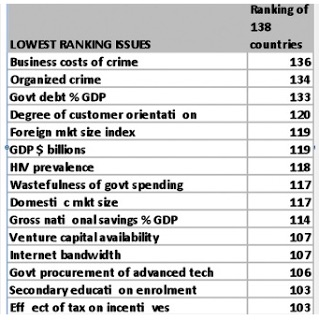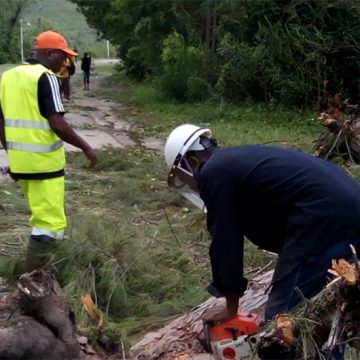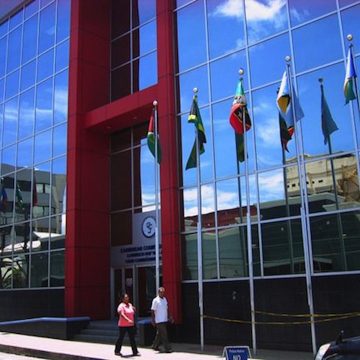Jamaica’s Competitiveness Challenges

More on Jamaica’s economic issues
By Dennis Chung
CJ Contributor
Last week, I ended by speaking on the point that if we are to see true economic and social development in Jamaica, this can only come through increasing our competitiveness as a country. The only way for us to do that is to target the categories of Efficiency Enhancers and Innovation in the Global Competitiveness Report (GCR) ranking, as our improvement has been in the category of Basic Infrastructure primarily.
In other words, what we have been doing over the past four years is creating capacity (such as through institutions and infrastructure development) and macroeconomic and fiscal stability.
This has caused us to see improved confidence and thus increased investments and a return to growth. (It is reported that in the September 2016 quarter, year over year growth was 2.3 per cent annualised. This, however, reflects the bounce back from the drought that affected agriculture and so a more normalised growth may be under two per cent — still a significant development.)
So if we look back at the areas of Basic Infrastructure, we would have seen significant five-year improvement in the pillars of Macroeconomic Environment (17 per cent improvement) and Health & Primary Education (38 per cent).
However, when it comes to our Institutions and Infrastructure, we have only seen five-year improvements of eight per cent and three per cent respectively. A further analysis shows that of these four basic infrastructure pillars, only Health & Primary Education is in the top 50 rankings, with Macroeconomic Environment at 112, Institutions at 73, and Infrastructure at 77.
So even though our overall improvement has come from the basic infrastructure category primarily, the fact is that the improvement does not mean that we are where we should be as our institutions and infrastructure primarily remain serious impediments to development. In fact, the recent occurrences in the “X6 court case” and the unacceptable situation at the Firearm Licensing Authority prove that our institutions remain a problem.
In the area of Efficiency Enhancers, we even have a more serious issue, as in the pillars of Higher Education & Training, Technological Readiness, and Market Size, we have seen five-year declines of 13 per cent, five per cent, and 17 per cent respectively, and rankings of 90, 77, and 119. These are pillars that are essential for improved competitiveness and are therefore a serious concern, and they must be targeted if we are to improve our international competitiveness to create sustainable growth and development.
In fact, the area of Higher Education is of primary concern, as there is no rich country that has a relatively undereducated labour force. I was just this week having a conversation with someone about the future of driverless cars and robots doing most of the menial tasks which Jamaica embraces as job creation. Our labour laws, for example, have helped to impoverish our labour force by creating greater informality in the labour force and lowering productivity. This has all been done with good intentions (and to get votes), but it has had a distortionary effect on the labour market and created less value.
Under Efficiency Enhancers we have seen five-year improvements in the pillars of Goods Market Efficiency, Labour Market Efficiency, and Financial Market Development of 11 per cent, 10 per cent, and 16 per cent respectively. However, the rankings for Goods Market Efficiency (61) and Labour Market Efficiency (60) are still out of the top 50 countries, and show that much work needs to be done, primarily from the regulatory side to improve.
The Innovation and Sophistication category shows five-year improvement in both pillars of Business Sophistication and innovation of 14 per cent and nine per cent respectively. This, in my view, reflects the natural improvement in the private sector, which controls the movement in these pillars. The problem with these is that they are both out of the top 50 countries, at 57 and 70 respectively. Even though they are not where we want them to be in the rankings, my own view is that if we were to create a friendlier and less inhibiting environment, through better regulations and lower entry barriers, we could see a more significant improvement in the Innovation category.

The table shows us the lowest ranked areas from the 2016/17 GCR report (over 100). What it shows us is that the challenges we face for competitiveness, which negatively affects our economic and social development, is primarily because of crime and justice, fiscal management, and government policy.
We all know about the deficiencies in the justice system, and the crime challenges, but as an example, the approach of tax policy in past years has been to raise the taxes every year on people who are compliant, largely ignoring the non-compliant and the fact that higher tax rates drive capital away from the country. The recent successes of the Employment Tax Credit and moves by Tax Administration Jamaica at compliance and ease of paying taxes, show that lower tax rates and easier tax systems do increase compliance and collections.
There is a lot more that could be done in terms of a detailed analysis of Jamaica’s lack of competitiveness, and hence lack of development, but space does not permit. Suffice it to say that what we must do is not just celebrate the headlines but take a strategic and surgical approach, to look at what are the factors that prevent us from achieving the growth and development we need — and then implement policies specifically to improve those areas.
This is the only way for us to get to where we need to be as a country to ensure prosperity for all Jamaicans.
Dennis Chung is a chartered accountant and is currently Vice President of the Institute of Chartered Accountants of Jamaica. He has written two books: Charting Jamaica’s Economic and Social Development – 2009; and Achieving Life’s Equilibrium – balancing health, wealth, and happiness for optimal living – 2012. Both books are available at Amazon in both digital and paperback format. His blog isdcjottings.blogspot.com. He can be reached at drachung@gmail.com.







